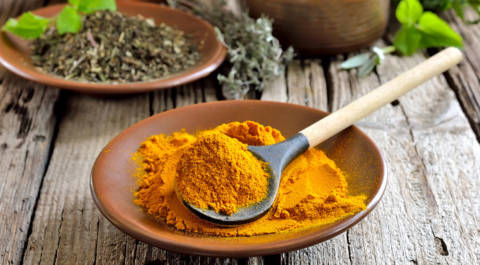
In the autumn months we reap the harvest of the soil and the soul. When we settle into a quieter and calmer season, we have the time and space to reflect upon the busy summer months and soak in the blessings of friends and family.
Like Organic Soul on Facebook
Who, or what, do you have to be thankful for this year? By the time we all sit around the Thanksgiving table and take turns expressing our gratitude, it’s sometimes hard to sum up everything that we are grateful for in just a few sentences. In truth, we can’t express it all in just words.
Like most worthwhile emotions and experiences, the power of gratitude exists in how we use it to manifest strength and inspiration. Actions often do have more impact than words when it comes to being grateful for the gifts our lives hold.
Gratitude is not just a state of mind and a gateway to positive action. Studies have also shown it to yield many physical and psychological health benefits.
Robert A. Emmons is the author of Thanks! How the New Science of Gratitude Can Make You Happier, and a professor of psychology at the University of California, Davis. In their studies, Emmons and fellow researchers found evidence to support how gratitude enhances one's personal and relational existence. (1)
In his work and research, Emmons has found that practicing gratitude has positive benefits on the physical, social and psychological well being of individuals.
Physically, he says benefits include a stronger immune system, better exercise and eating habits, lower blood pressure and better sleep. Socially and psychologically, Emmons says that gratitude contributes to an increase in optimism and joy, and helps and individual become more outgoing, compassionate, gracious, generous and forgiving. (2)
Since during the holidays we aim to be more generous, joyful and compassionate, as well as strive to maintain personal health during busy, indulgent and cold winter months — what better way to practice wellness than to practice gratitude?
Think of incorporating more gratitude into your daily life as a shield against negative emotions. If you ever start to feel sad, envious, regretful or resentful, try to push that feeling away by looking at the situation through a lens of gratitude.
“When we look at life as a whole, gratitude encourages us to identify some amount of goodness in our life,” says Emmons in an article from the Greater Good Science Center at the University of California, Berkeley.
“Gratitude makes us appreciate the value of something,” Emmons says, “And when we appreciate the value of something, we extract more benefits from it; we’re less likely to take it for granted.” (2)
We commonly say “thank you” out of both habit and politeness, and we even write thank you notes to extend our gratitude. What we forget is that we can say thanks without ever saying anything at all, and it’s the actions and gestures of gratitude that are often those that are the most powerful and inspiring.
Embracing grateful action begins by the way we think about ourselves, alongside our accomplishments and our goals. By realizing how others have helped us get where we are today, whether that be life-long support from family and friends, or mentors offering teachings along the way, we shift from a self-centered mindset to one that gives credit to those that have helped us. This will immediately turn our gaze toward that of gratitude and it is only natural to offer our thanks to others.
What are some ways we can express our gratitude on a daily basis? One strategy is to think about our five senses. We experience the world through sight, taste, smell, touch and sound. These are also key parts of our interaction with others, and perfect ways to tap into gratitude—take someone on a walk to watch the sunset, make your favorite bread loaf recipe for your neighbor to savor, give your mom fresh and fragrant flowers, hold the hand of a person you love, share music or a favorite memory with a friend.
Emmons recommends keeping a gratitude journal and recording five things that you are grateful for every week. This helps it to be a more conscious and consistent practice. The more you are aware of graciousness that surrounds you, the more you will be able to ground yourself in gratitude.
If actions really do speak so loudly, think about the power we have to truly give our thanks.
Sources:
1) http://www.chucklin.org/wp-content/uploads/2010/02/Emmons_McCullough_2003_JPSP.pdf
2) http://greatergood.berkeley.edu/article/item/why_gratitude_is_good/














